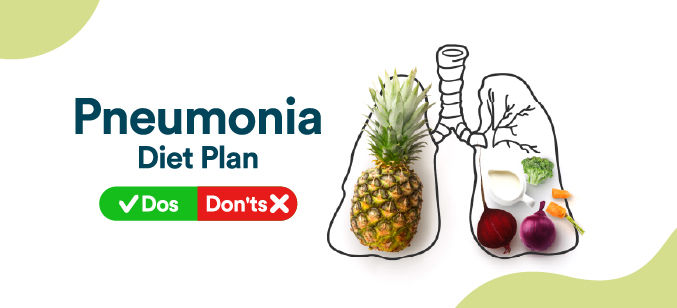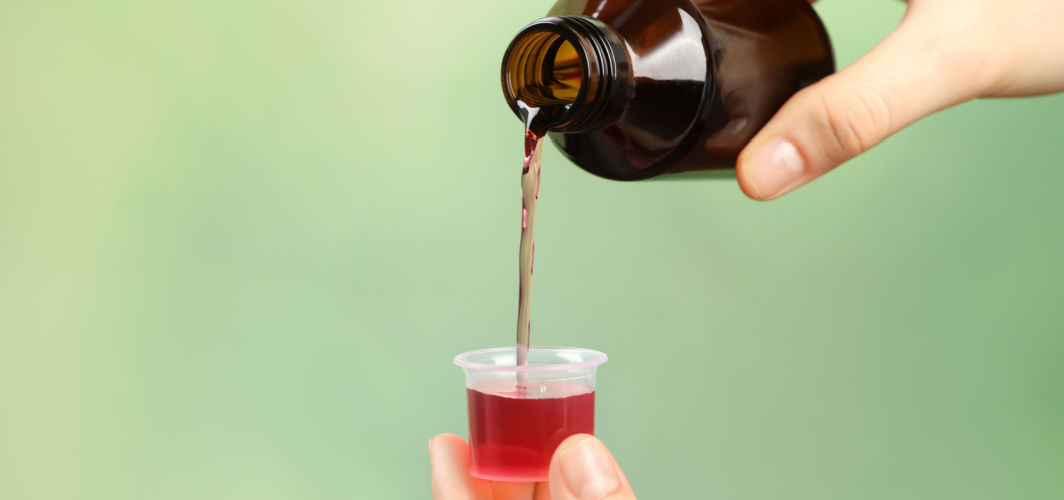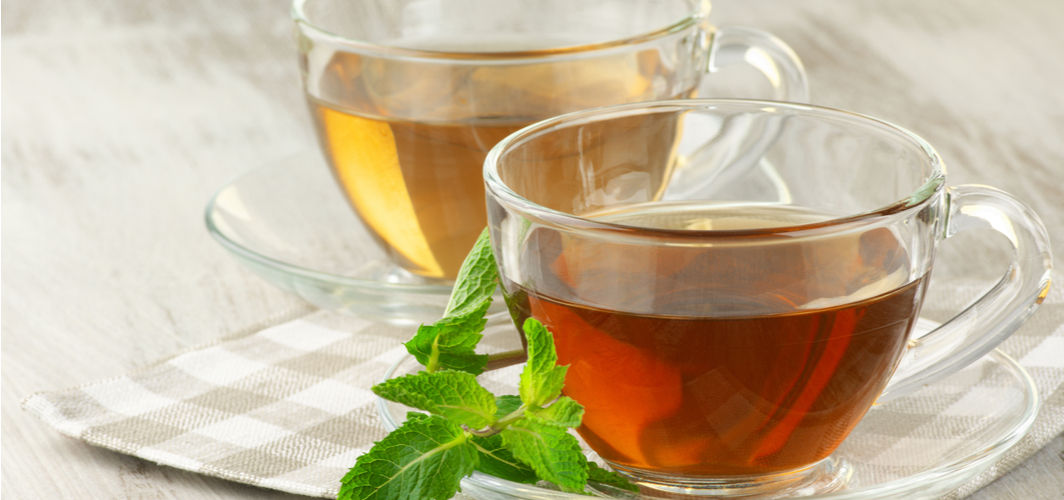General Health
Pneumonia Diet: What to Eat and Avoid in Pneumonia?
4 min read
By Apollo 24|7, Published on - 12 January 2023, Updated on - 22 August 2023
Share this article
0
12 likes

Pneumonia is an illness in which the lung cells, alveoli, swell up and get filled with fluid. Though there could be a variety of underlying factors. It typically begins as a bacterial, viral, or fungal infection and has the potential to progress to a life-threatening condition.
If a person develops severe pneumonia symptoms like breathing difficulty, one needs to consult a pulmonologist or lungs specialist without any delay. While no home remedy can cure pneumonia, after its critical phase surpasses, one needs to focus on a recommended pneumonia diet to recover faster.
Foods To Eat and Drink in Pneumonia
4 foods for pneumonia that promote the health of the lungs and help speedy recovery are:
1. Whole Grains
Whole grains like brown rice, oats, and barley have good carbohydrate content to give the energy one needs to recover. The selenium content present in whole grains boosts the immune system as well.
2. Green Leafy Vegetables
Spinach, kale, and other green leafy vegetables contain antioxidants that help with the healing of respiratory infections like pneumonia faster.
3. Protein-rich Foods
Nuts, beans, seeds, chicken, and fish like salmon have anti-inflammatory properties. A protein-rich diet helps build new tissues in the body and replace the damaged lung tissues affected by pneumonia.
4. Yoghurt
Yoghurt has excellent probiotics which promote good bacteria in the gut, and also suppress the growth of pneumonia-causing pathogens.
These 4 best foods should be in the pneumonia diet chart to accentuate a speedy recovery.
Apart from the above 4 best foods, drinking water is very important.
Water
It is important to keep oneself hydrated with water and other healthy liquids like tender coconut water. This loosens the mucus that builds up in the lungs during the pneumonia infection. Water also flushes out toxins from the body.
Foods and Drinks to Avoid in Pneumonia
These are the foods to avoid when diagnosed with pneumonia:
1. Processed Meats
According to studies, the nitrites used in the production and preservation of processed meats may cause inflammation and stress in the lungs.
2. Alcohol
Alcohol contains sulphites, which can exacerbate the symptoms of pneumonia. Also, ethanol commonly found in beer, wine, and liquor affects lung cells.
3. Sugary Drinks
According to a study, adults who consume sweetened soft drinks more than 5 times a week are twice likely to have chronic bronchitis. While children are more likely to have asthma. Both chronic bronchitis and asthma can worsen your pneumonia symptoms.
4. Foods High in Sodium
Consuming too much table salt or salty packaged foods can aggravate the symptoms of pneumonia like shortness of breath.
The Bottom Line
The probability of getting pneumonia is quite common when there is a hygiene challenge and a higher risk of predisposition to infected individuals. If symptoms like breathlessness, fever, and chest pain continue to disturb you, it is prudent to get yourself diagnosed without any delay. While a pulmonologist would guide you on medications, it is imperative to consult a dietitian for recommendations on a pneumonia diet plan to recover faster!
Frequently Asked Questions [FAQs]
1. What can help you heal faster from pneumonia?
Rest, medicines, proper diet, and increased fluid intake are four pointers for pneumonia treatment. One should continue following the pneumonia diet chart, even if the pneumonia symptoms start to fade.
2. What is a good home remedy for pneumonia?
Though pneumonia does not have any home remedy, it is important to stay hydrated. Water, electrolyte drinks, herbal teas, and various soups are recommended for faster recovery.
3. How long pneumonia takes to heal?
There is no one-size-fits-all in a pneumonia treatment plan. Some people may recover in around 6 weeks, while others may take several months.
4. Which drink is good for pneumonia?
Green tea. It is high in antioxidants, which may help reduce inflammation in the lungs. It is a good option to drink a cup of green tea with a splash of ginger or lemon daily during the recovery phase.
5. What are the danger signs of pneumonia?
Consult a doctor immediately, if you have trouble breathing, chest pain, persistent fever of 102-degree F (39-degree C), or a chronic cough, particularly if one is coughing up the pus.
Medically Reviewed by Dr. Dhanunjay Reddy B
General Health
Leave Comment
Recommended for you

General Health
Can Aptivate Syrup Help Boost Your Appetite?
Aptivate Syrup is a powerful solution for individuals who struggle with poor appetite and weight loss. It works by increasing appetite, providing nutritional support and an enhanced metabolism.

General Health
Green Tea VS Black Tea: Is It That Difficult To Pick The Side?
While green tea lowers cholesterol levels, black tea has anti-inflammatory properties. Read to know more about the benefits of both the tea.

General Health
Want A Flexible Body? Give These Yoga Asanas A Try!
Flexibility is also one of the key indicators of good physical health. The article explores 5 yoga exercises that will help you become more flexible.
Subscribe
Sign up for our free Health Library Daily Newsletter
Get doctor-approved health tips, news, and more.
Visual Stories

Could There Be More to Your Snore?
Tap to continue exploring
Recommended for you

General Health
Can Aptivate Syrup Help Boost Your Appetite?
Aptivate Syrup is a powerful solution for individuals who struggle with poor appetite and weight loss. It works by increasing appetite, providing nutritional support and an enhanced metabolism.

General Health
Green Tea VS Black Tea: Is It That Difficult To Pick The Side?
While green tea lowers cholesterol levels, black tea has anti-inflammatory properties. Read to know more about the benefits of both the tea.

General Health
Want A Flexible Body? Give These Yoga Asanas A Try!
Flexibility is also one of the key indicators of good physical health. The article explores 5 yoga exercises that will help you become more flexible.